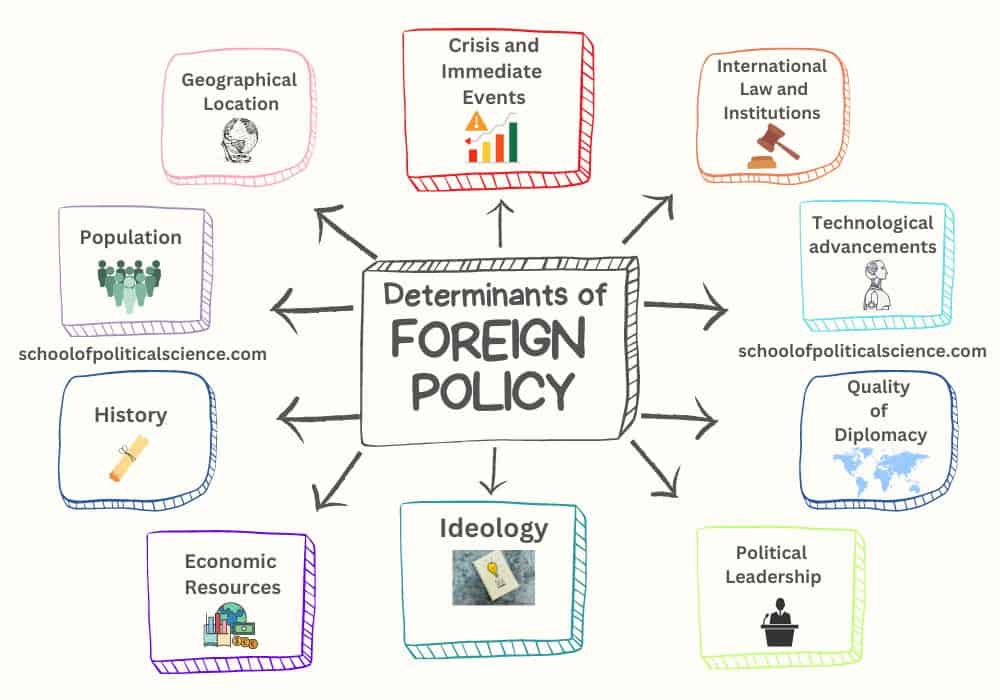Exploring Key Aspects of Foreign Affairs

Exploring Key Aspects of Foreign Affairs
Navigating the Dynamics of Global Diplomacy
In an interconnected world, the term “foreign affairs” resonates with intricate diplomatic negotiations, international relations, and the delicate balance of power among nations. These key aspects not only shape the interactions between countries but also influence global stability, security, and cooperation. In this article, we embark on a journey to explore the multifaceted dimensions of foreign affairs, shedding light on its significance, challenges, and the implications it holds for the international community.
Defining Foreign Affairs: Beyond National Borders
Foreign affairs encompass the external interactions, policies, and strategies a country employs to navigate its relations with other nations. It extends beyond traditional diplomacy and includes a broad spectrum of activities, from trade agreements and cultural exchanges to security alliances and humanitarian aid efforts. Foreign affairs reflect a nation’s stance on international issues and its role in the global community.

International Relations: The Foundation of Diplomacy
At the heart of foreign affairs lies international relations—the intricate web of connections that nations foster through diplomatic channels. Establishing and maintaining these relations requires effective communication, negotiation, and understanding. International relations shape the trajectory of nations, determining alliances, partnerships, and areas of collaboration.
Diplomacy: Navigating the Pathways to Peace
Diplomacy serves as the linchpin of foreign affairs, acting as the bridge between divergent national interests. Through diplomatic negotiations, countries seek common ground, resolve conflicts, and address mutual concerns. Skilled diplomats employ tact, cultural sensitivity, and strategic thinking to navigate complex negotiations and advance their country’s interests.
Soft Power and Cultural Diplomacy
Foreign affairs also encompass cultural diplomacy, a softer approach that uses cultural exchanges, educational programs, and arts to foster goodwill between nations. Cultural diplomacy enhances mutual understanding, promotes dialogue, and builds bridges across borders. It enables countries to showcase their heritage, values, and creativity on the global stage.
Security and Global Stability
Security considerations play a crucial role in foreign affairs. Nations collaborate on matters of security to counteract shared threats, such as terrorism, cyberattacks, and transnational crime. Through alliances like NATO and joint efforts against proliferation, countries strive to maintain global stability and safeguard their citizens.
Economic Interactions and Trade Agreements
Economic cooperation is a significant facet of foreign affairs. Trade agreements, investment partnerships, and economic alliances promote mutual prosperity and growth. Nations negotiate trade terms, remove barriers, and establish economic ties that foster interdependence and contribute to global economic stability.
Challenges and Complexities
Foreign affairs are not without challenges. Competing national interests, cultural differences, and historical grievances can complicate diplomatic efforts. Moreover, shifting power dynamics, emerging technologies, and environmental issues pose new challenges that demand innovative approaches to international cooperation.
Multilateral Organizations: Platforms for Collaboration
Multilateral organizations, such as the United Nations, World Trade Organization, and World Health Organization, provide avenues for countries to collaborate on global challenges. These platforms facilitate dialogue, coordinate efforts, and address issues that transcend borders, including climate change, health crises, and human rights.
Soft Power and Cultural Diplomacy
Foreign affairs also encompass cultural diplomacy, a softer approach that uses cultural exchanges, educational programs, and arts to foster goodwill between nations. Cultural diplomacy enhances mutual understanding, promotes dialogue, and builds bridges across borders. It enables countries to showcase their heritage, values, and creativity on the global stage.
Looking Ahead: The Future of Foreign Affairs
As the world evolves, so does the landscape of foreign affairs. Rapid technological advancements, shifting geopolitical dynamics, and evolving global challenges reshape the way countries engage on the international stage. Effective foreign affairs demand adaptable strategies that harness innovation, address new threats, and foster cooperation in a rapidly changing world.
Conclusion: The Complex Tapestry of Global Relations
Foreign affairs are a complex tapestry woven with threads of diplomacy, economics, security, and culture. It’s a realm where nations navigate the delicate balance between sovereignty and collaboration. As the world becomes increasingly interconnected, understanding the key aspects of foreign affairs becomes essential for informed citizenship and effective global engagement. Through skilled diplomacy, cultural exchanges, and cooperative efforts, countries work together to build a harmonious and interconnected world that benefits all its inhabitants.
#foreign affairs#Aspects of Foreign Affairs#exchanges#citizenship






